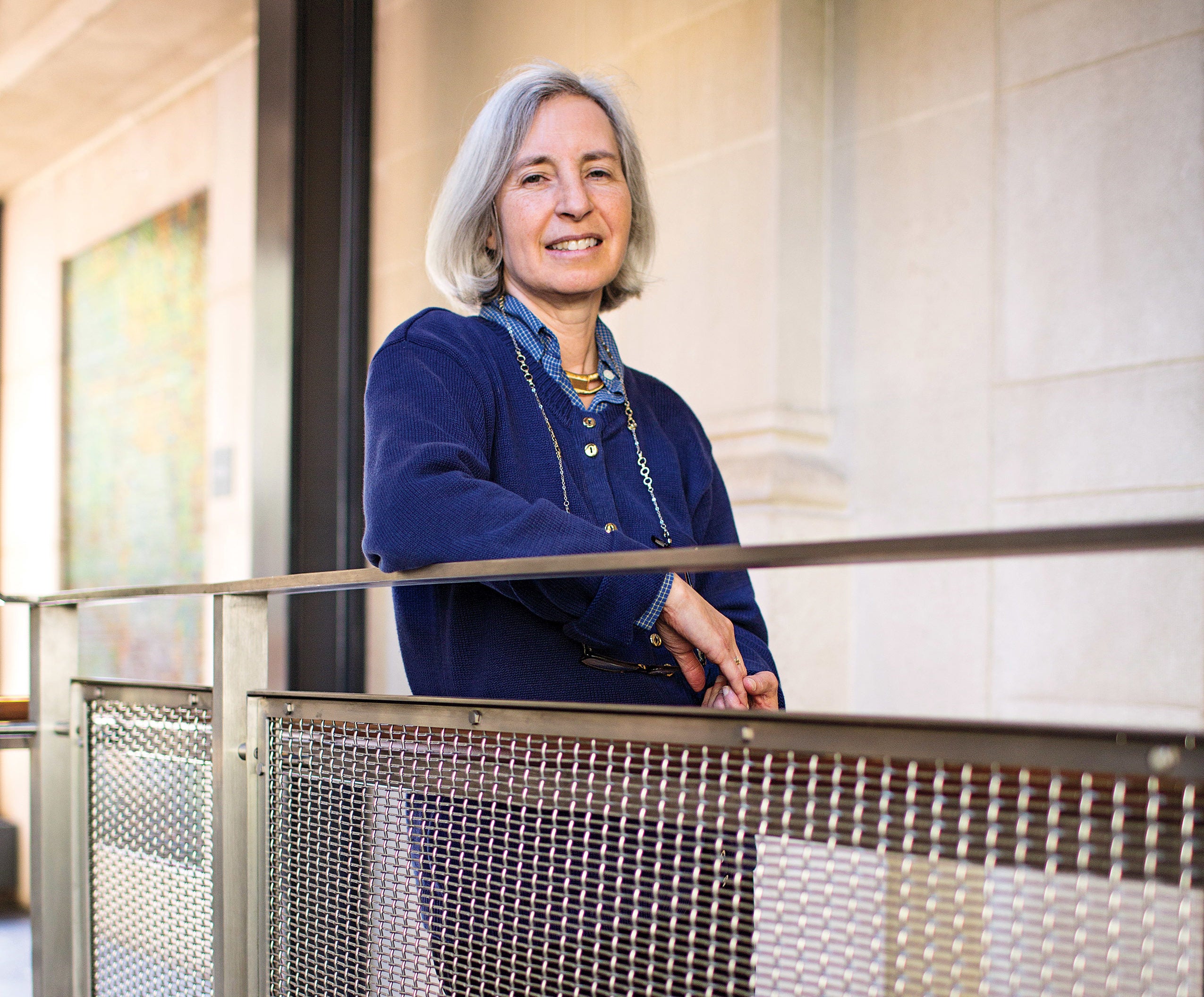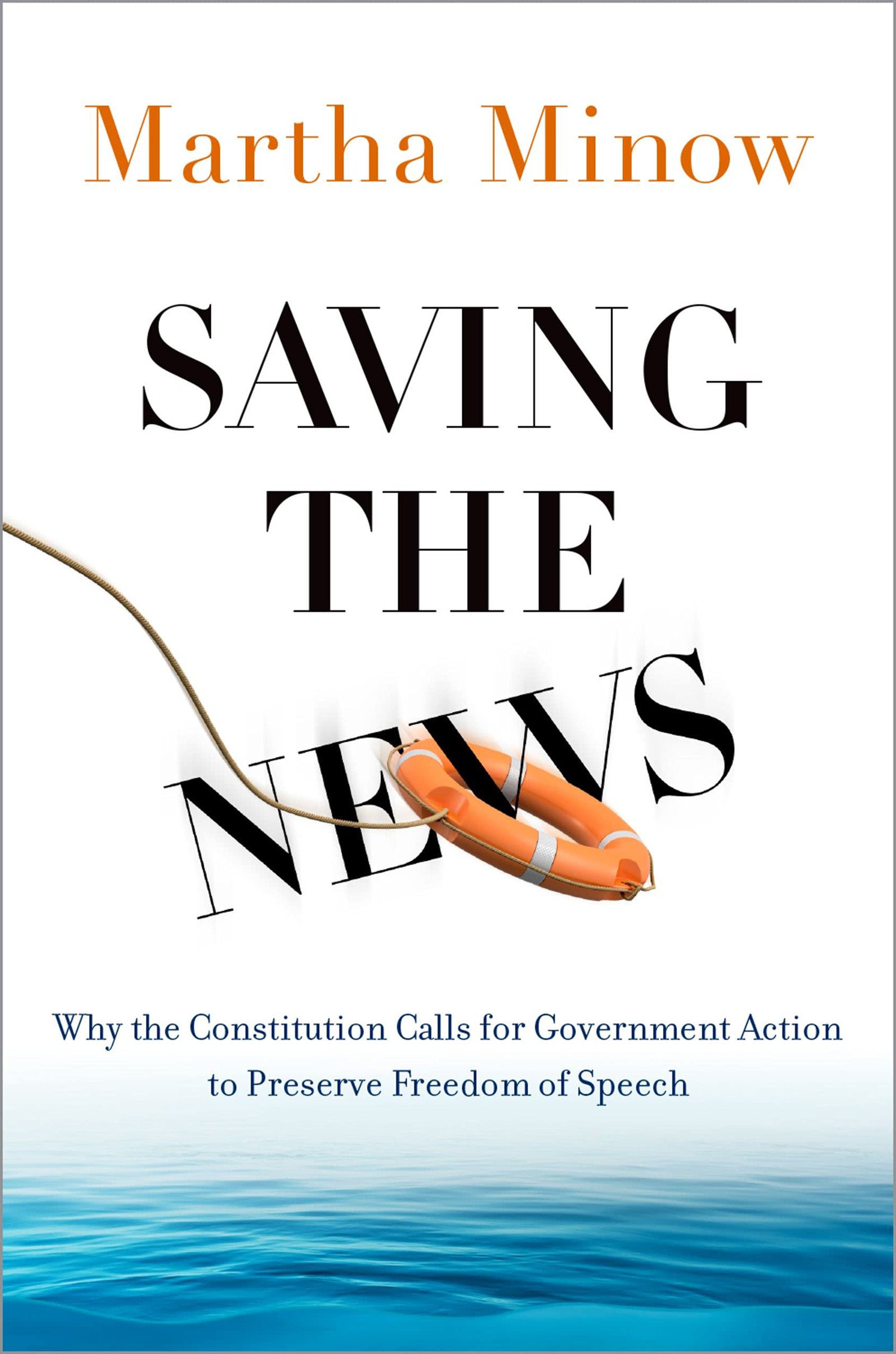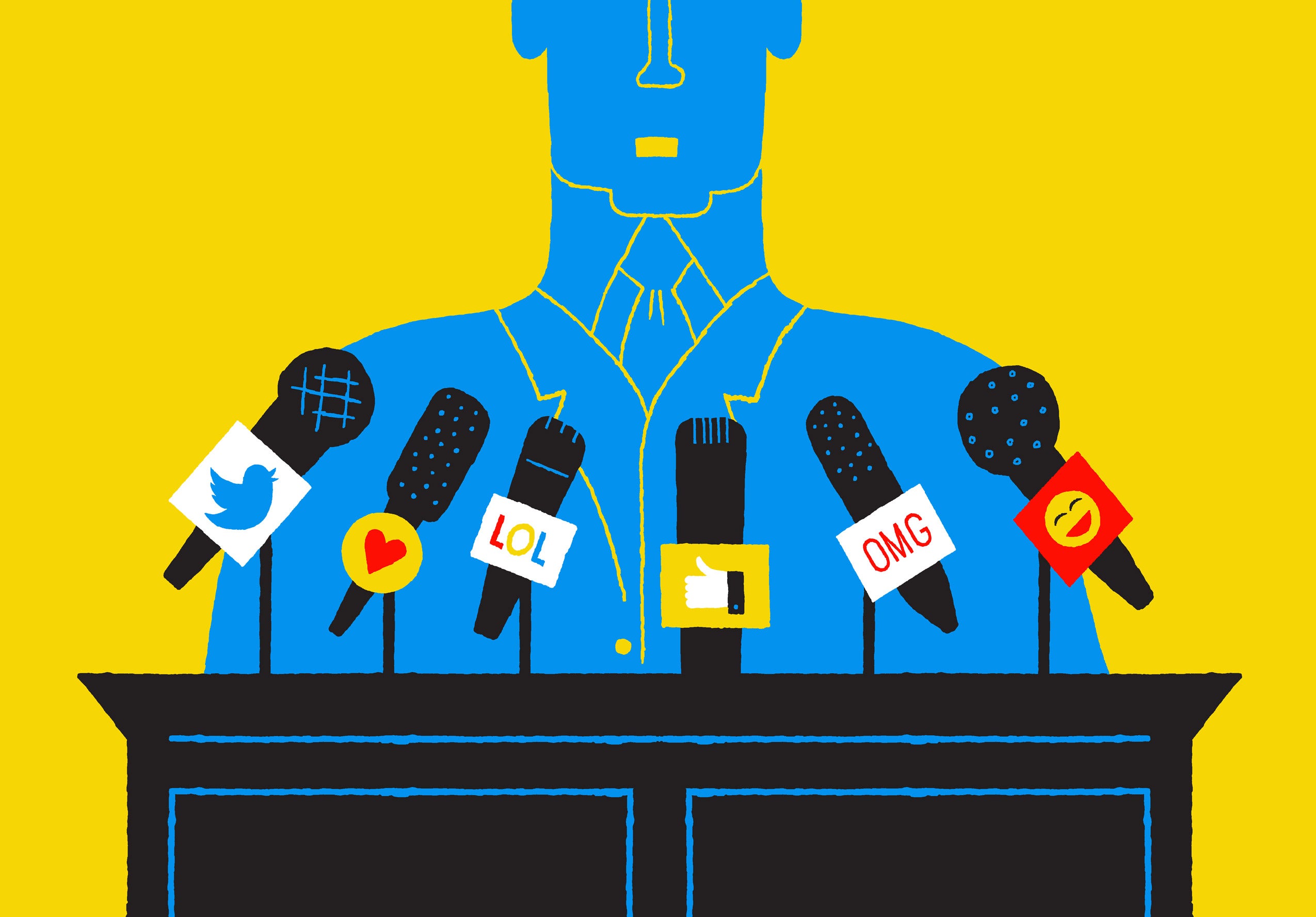Sixty years ago, the chair of the Federal Communications Commission gave a speech that became famous for his description of television as a “vast wasteland.” Someone who knows him well says that he always wished two other words in the speech had received as much attention: public interest.

“That, I think, is even more relevant today than it was then,” said Professor Martha Minow, “because it’s harder to even get people to take seriously that there is a public interest in the construction of a media environment.”
The FCC chair was Professor Minow’s father, Newton Minow, whose “vast wasteland” speech was actually titled “Television and the Public Interest.” In her new book, “Saving the News: Why the Constitution Calls for Government Action to Preserve Freedom of Speech,” which includes a preface by her father, Martha Minow again takes up the question of media and the public interest, urging people to take seriously the dangers of the current media environment — and arguing that the government should take steps to ensure that the media will serve the public.
Minow notes in her book that the nation’s founders deemed the press so crucial to its citizens that it was the only private enterprise mentioned in the Constitution, specifically in order to protect it. Of course, the founders could not have envisioned that “the press” would morph into the current digital information ecosystem, which she argues has led to changes that disserve the public interest, including disinvestment in newsgathering and an overwhelming volume of material replete with misinformation. Minow writes that powerful digital platforms like Facebook don’t create news but disseminate it widely, and they provide global forums for conspiracy theories and lies while being immune from liability. With the rise of social media and the decline of traditional news outlets, particularly local news, “constitutional democracy itself is in the balance.”
“I don’t want to lose the democratization of the means of communication, but I do want to restore the trust and the creation of shared reality.”
Martha Minow
Government can and should play a role in strengthening the reliability and viability of newsgathering and distribution, she says, despite what she calls an aggressive libertarian reading of the First Amendment that is growing in the courts. Indeed, she argues, the government has historically influenced how the news industry operates. Minow cites precedents ranging from Congress’ creating a postal service in 1792 in order to facilitate the distribution of news, to government support for the development of the internet. She also cites regulatory efforts such as rules restricting concentrated ownership or prohibiting anti-
competitive behavior by media companies. As she writes: “Government instigation, resources, oversight, and influence have been indispensable to the development of modern communications.”
Minow proposes a set of reforms that would both adhere to the First Amendment and benefit news consumers, she says, and would be focused on the “destructive effects” of internet companies, public interest regulation, and support for public interest news sources. They include requiring payments to news producers from internet companies and subjecting those companies to liability similar to traditional publishers; providing tax incentives for nonprofit journalism; and instituting a “fairness and awareness doctrine” that would expand consumer choice and balance of news sources.

If enacted, reforms such as these may not solve every problem, but “I think there would be a rather serious improvement for anyone who’s interested in getting news if there were more tools required by the internet providers for us to be able to see with transparency how our newsfeed is being curated and to actually choose to see more variety,” Minow said. “If there were much more sustained public investments in local news, for example, we would have stories that we don’t currently have.”
Minow, a University Professor at Harvard who served as HLS dean from 2009 to 2017, was inspired to write on the topic after the 2016 election, which highlighted the problems of disinformation, misinformation, and information overload. As a constitutional law professor, she said: “I’m very aware of the ways in which the assumptions behind the Constitution are not always supported by the country that we’ve created. And one of those presuppositions is, of course, the existence and durability of a vital media news capacity.”
The book is also personal to Minow. She was a student journalist starting in middle school and during her time as an undergraduate at the University of Michigan during the Watergate era, when journalists were considered heroes, she said. She seriously considered journalism as a career but decided that she preferred taking action rather than reporting on others who do so. Her family influenced her thinking on the media as well, especially her father, and she grew up in a household in which discussions about the media were an everyday occurrence.
She believes that the thirst for quality investigative journalism is broader than the supply — and that common ground exists to make change, including mounting bipartisan concern over misinformation and immunity given to digital platform companies. But if nothing does change, she fears that the news as we know it will no longer serve the public interest.
“I don’t want to lose the democratization of the means of communication, but I do want to restore the trust and the creation of shared reality,” said Minow. “And it’s going to take a long, long road to get there.”
